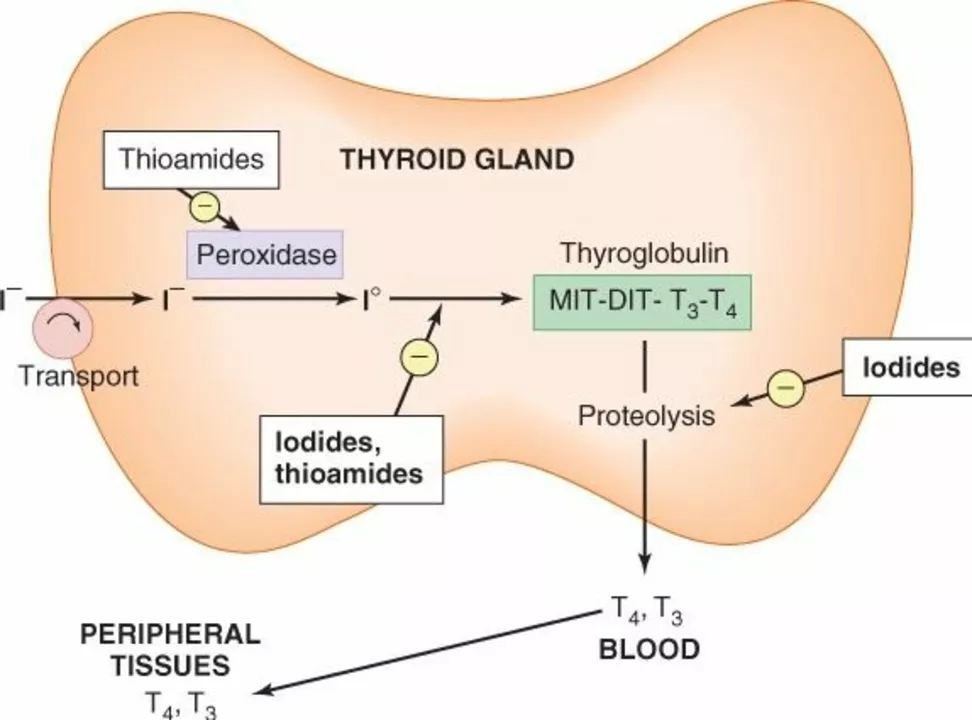Thyroid function — what it does and why you should care
Your thyroid controls metabolism, energy, weight, mood, and body temperature. When it’s off, you notice it fast: fatigue, weight changes, hair loss, temperature sensitivity, or heart palpitations. That doesn’t mean every symptom is thyroid-related, but if multiple signs show up together, get tested.
Common symptoms and when to test
Low thyroid (hypothyroidism) often brings tiredness, slow thinking, weight gain, constipation, dry skin, and heavy menstrual periods. High thyroid (hyperthyroidism) gives anxiety, fast heartbeat, weight loss, sweating, and loose stools. If you have persistent symptoms, a simple blood test can help — start with TSH and a free T4. If needed, doctors add free T3 or thyroid antibodies (anti-TPO, anti-thyroglobulin).
How tests work and what to expect
TSH is the first test most doctors order. It tells the pituitary how hard it needs to push the thyroid. A high TSH usually means underactive thyroid; a low TSH suggests overactive. Free T4 and free T3 measure the hormones the body uses. Antibody tests point to autoimmune causes like Hashimoto’s (common for hypothyroid) or Graves' disease (common for hyperthyroid).
If you have a nodule, your doctor may order a thyroid ultrasound and sometimes a biopsy. If you take thyroid meds, blood levels are usually checked 6–8 weeks after a dose change and then every 6–12 months once stable.
Treatment depends on the type. Hypothyroidism is usually treated with levothyroxine — a daily pill that replaces T4. Take it on an empty stomach, 30–60 minutes before breakfast, and separate it from calcium or iron by four hours. Hyperthyroidism has several options: beta blockers to ease symptoms, antithyroid drugs, radioactive iodine, or surgery in some cases. Your doctor will guide the best choice for you.
Small lifestyle steps help too. Aim for a balanced diet with enough iodine but avoid huge iodine supplements unless your doctor asks for them. Keep calcium, iron, and high-fiber meals away from your thyroid pill timing. Regular exercise and sleep improve symptoms like fatigue and weight changes.
Special situations: pregnancy needs tighter thyroid control — TSH targets change and doses often increase. Older adults and people with heart disease may have different treatment goals, so don’t compare labs with friends.
Questions to ask your doctor: Which tests do I need? What TSH target should I aim for? How often will you check my levels? Could any of my other medicines affect my thyroid drug? These help you get a clear plan fast.
If symptoms are strong or change suddenly — rapid heart rate, fainting, severe weight loss, or high fever with confusion — seek urgent care. For most other issues, start with your primary care doctor or an endocrinologist and use the tests above to guide treatment. Your thyroid can be managed well once you know what’s going on and follow a simple plan.

